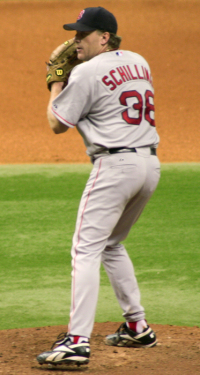On March 22, legislation to ban the use of smokeless tobacco products at all professional sporting venues, including baseball stadiums, was passed by the New York City Council.
The vote comes after Mayor Bill de Blasio promised he would prohibit smokeless tobacco use by professional athletes and fans alike at sporting events.
“We don’t want young people seeing the players they look up to engaging in something that’s bad for their bodies,” de Blasio said in an interview with ESPN. “We don’t want young people thinking that’s cool to do.”
Smokeless tobacco has long been a staple in baseball, especially at the Major League level. Whether they are at the plate, on the mound, or in the dugout, a large portion of players can be seen with a hefty lump in their cheek, spitting from time to time. Even managers and umpires take part in the practice.
However, the problem is that chewing tobacco is not so much a practice as it is an addiction.
Because of nicotine and other chemicals present in the product, smokeless tobacco is an addictive substance. According to the National Institute of Dental and Craniofacial Research, the drug gives off as much nicotine as smoking three cigarettes in just one half-hour, on average.
Players become hooked without realizing the potential consequences, and even if they do, quitting is extremely difficult.
In 2014, at age 54, eight-time NL Batting Champion Tony Gwynn, a Hall of Famer, passed away after complications from cancer and a long battle with many health issues. Before his death, Gwynn attributed his health problems to decades of dipping during his career.
Although doctors say they cannot prove this to be true, they cannot rule it out, as studies have linked tobacco use and cancer countless times.
In an article published on The Players’ Tribune in 2015, former World Series co-MVP and pitcher Curt Schilling detailed his struggle with smokeless tobacco. He lost his sense of taste and smell, developed gum and tooth decay, gum cancer, along with a guilty conscience, stemming from losing his father to a heart attack and lung cancer attributable to tobacco use. He recalled meeting others who suffered through the same addiction, some of whom even lost their jaws, chins, cheeks and noses to the disease.
Many believe it has no place in baseball because of stories like these.
Baseball players can do what they want off the field and in their own homes, but while enjoying the privileges of being paid and televised to play a sport, they do not need to be afforded the right of using a harmful, carcinogenic drug.
For their sake, as well as for the sake of kids everywhere looking up to them, MLB players should not be allowed to use smokeless tobacco.
Chewing tobacco has been banned in the minor leagues for decades, and has helped decrease the issue. Over time this problem can be diminished to a near-negligible level, or even eradicated entirely. Getting rid of the problem before it starts is a good strategy to eliminate tobacco from the major league field, and thanks to the recent passage of legislation, the problem could be abolished entirely.





